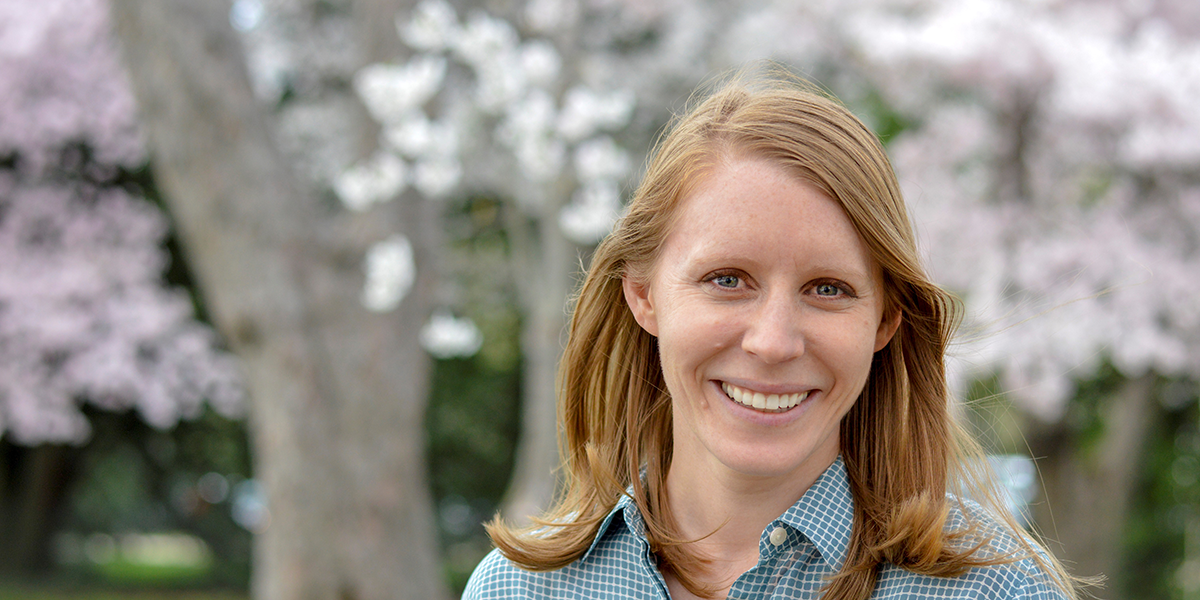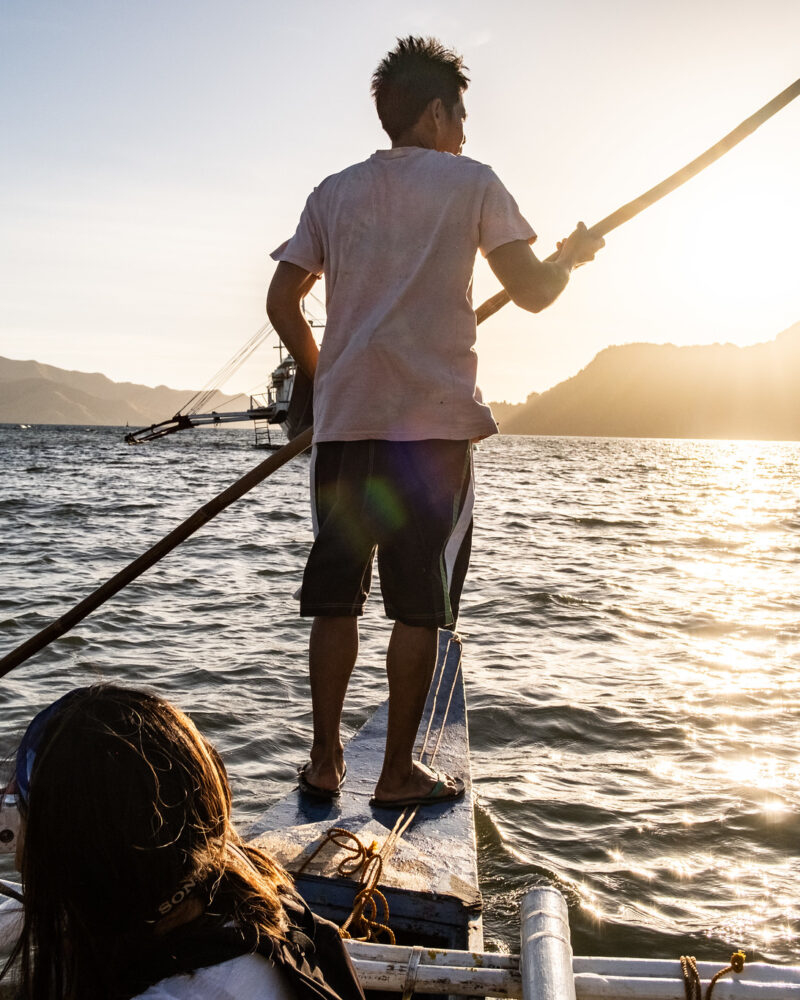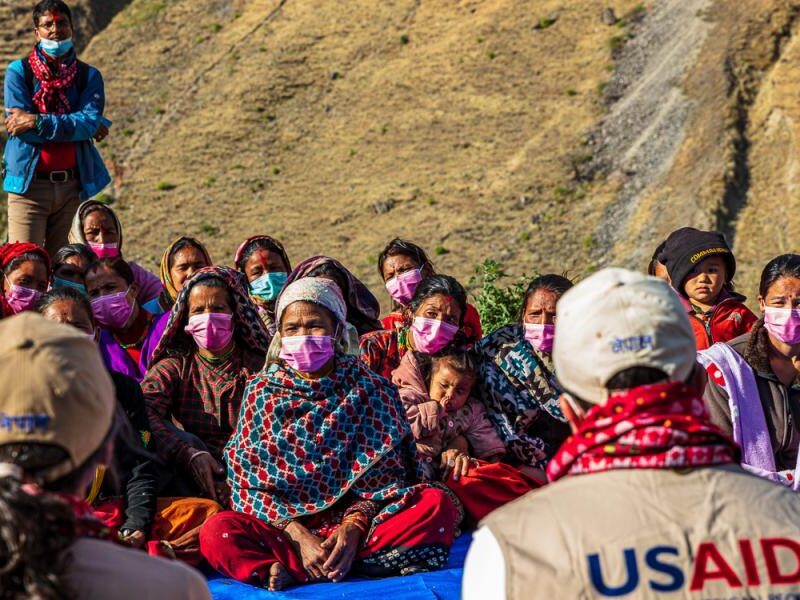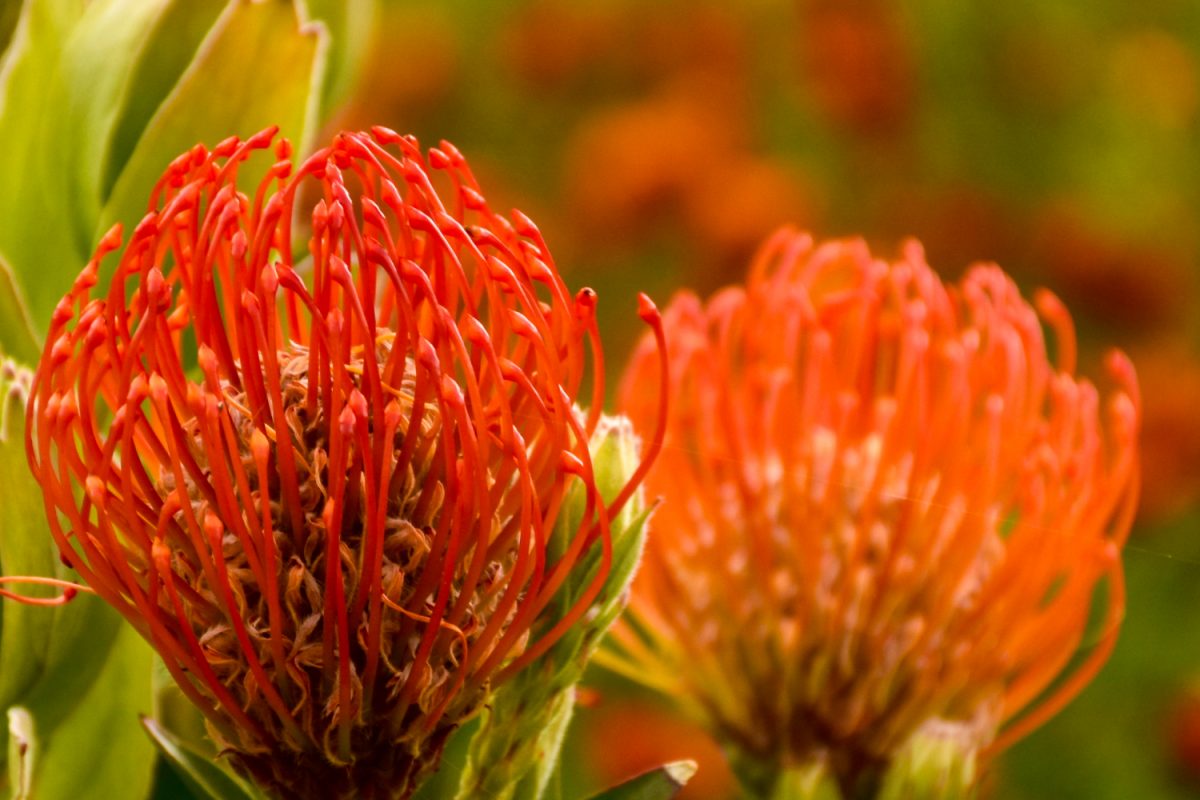We sat down for five minutes with Brittany Ajroud, who is a Senior Associate at Environmental Incentives. Read on to find out more about Brittany and her role!
HOW WOULD YOU DESCRIBE YOUR ROLE?
I am a Senior Associate working on the Sustainable WASH Systems Learning Partnership (SWS), which focuses on increasing the sustainability of water, sanitation, and hygiene (WASH) programs funded by USAID. My main focus has been designing and implementing a monitoring, evaluation, and learning plan for a consortium of four different project teams and multiple implementing partners. This plan lays the groundwork for how data will be collected and reported, and what we hope to learn from that data. I also support communication efforts to ensure that the good learning that is taking place on the ground is percolating up to reach the broader sector and inform future WASH activities.
WHAT WAS YOUR DREAM JOB GROWING UP?
My background is in conflict resolution, and for a while, I wanted to be a master negotiator working for the United Nations. I spent a summer living in Jordan working for an environmental NGO that brings together communities and government officials across the border to talk about their shared water issues. This led me to a greater understanding of the confluence around the environment and how it can be used as a peacebuilding tool. From there, the thread for me in my career has been an interest in water and the social dimensions that go along with it.
WHAT DREW YOU TO WORK AT ENVIRONMENTAL INCENTIVES?
For one, I was interested in getting to know USAID better, because they are such an important actor within the international development space. Now that I am two years in, I understand that universe a lot better. It is exciting to work with USAID and help them implement adaptive management and good programming practices around the world.
WHAT IS YOUR FAVORITE PART ABOUT WORKING FOR ENVIRONMENTAL INCENTIVES?
I love working for a small business. Coming from a big international NGO where it was easy to get lost, I like being part of a small, very dynamic team. I also like that Environmental Incentives is really good at walking the walk – we are always talking about a better way to do things and really live that in our company practices. I’ve never worked for a company that is so focused on metrics and results-based programming, but it makes a huge difference. It has been really inspiring for me and is something that I will take with me throughout my career.
What trends do you see emerging in the WASH sector?
There are three primary trends that come to mind. The first is an emphasis on systems-based approaches. This is not only in the WASH sector but in conservation and development as well. It’s an idea that a lot of money has been funneled into WASH projects, but we are not getting the results that we want to see. This is largely due to the fact that a lot of money is being invested in building infrastructure like water taps and toilets around the world, but we haven’t been thinking about the systems that need to be in place to sustain and maintain that infrastructure over time. This long-term view requires an understanding of the system which is made up of all these little parts. Things like financing for life-cycle costs, using context-appropriate technologies, having well-defined institutional roles and responsibilities, etc. What is exciting in the SWS project is that we are testing a few different systems-based approaches and will be able to contribute a lot of our learning to the broader WASH sector.
The second trend is a greater focus on monitoring that is targeted and focused. This means pinpointing our monitoring efforts using an underlying theory of change, and in some cases going beyond quantitative indicators to gather the qualitative narrative to support our results. This helps to create a more complete picture of what is going on in a community and is a really important piece of a systems-based approach. In my work, we are piloting the use of outcome mapping which has been great for our implementing partners to dig a bit deeper into what the numbers are telling them. Building these types of qualitative techniques into our regular monitoring give us clues about what is happening on the ground that can help us navigate the challenges we are facing.
Lastly, I think there continues to be a move toward cross-sectoral integration. It’s now well understood that we can’t operate in silos and we need to think more holistically about programming. Within the WASH sector, this means understanding that WASH services need to be supported by a healthy watershed which may require other, separate interventions to ensure adequate water quality and quantity. This might mean bringing in other perspectives or partners to achieve lasting solutions.
What is your proudest moment at Environmental Incentives?
When I came to Environmental Incentives, we were beginning the SWS project and it was an area of growth for the company. We were just starting to dip our toes into the WASH sector. It took some time, but we have now been able to successfully translate some of our best practices in biodiversity conservation to the WASH sector and are starting to see some of those results. Some of the learning questions that we started out with are yielding really important information. For me, it has been exciting to work on a project from inception and to see our thinking evolve over time. We now know that this process can work for multiple sectors with just a few tweaks in approach and terminology.
If you could learn to do anything, what would it be?
Actually, I think I am already on my way! One of my New Year’s resolutions is to get really good at baking pies. I think that pie crust is a lost art form. I’ve been learning so much about the science behind it as well as the creative element of how you can present it in a beautiful way. For me, I get so much pleasure out of baking or cooking for others, it’s one of the ways I show my love and appreciation for people in my life. Also, I have started taking French classes again. I have always wanted to be bilingual. I’ve spent a lot of time studying Arabic and French in my adult years, but I have never reached fluency in either.
What are your favorite pastimes?
I’m a very active person, and I love team sports. I’m on a volleyball team that plays once a week. Every year, I compete in a dragon boat racing competition. It’s with a group of environmentalists in the DC area and we’re called the “Green Dragons”. What I love about dragon boat racing is that everyone needs to be completely in sync in order to be the fastest boat on the water. You have 20 people in a boat and a short distance to cover, it’s a really fun challenge. Aside from that, anything that gets me outside in the mountains or on the water are the things that I enjoy the most.
What’s one food you can’t live without?
Grilled fish. My husband is from an island and his entire family is in the fishing industry. He is a master at grilling fish, so it is always on the menu at our house. We love going to the port to interact with local fishermen and look for good, sustainably caught fish in our area.
What is your favorite thing to do in DC?
Going to look at the monuments at night, they are so beautiful when they are lit up. It’s great to go at night when there is less tourist traffic and you can appreciate them without as many people around.
What is your biggest achievement to date?
When I graduated from college I moved to Tunisia and made my own Peace Corps-like experience there. I worked as a teacher and managed an educational project for underprivileged youth through the U.S. Embassy. I was there before, during, and after the Arab Spring. It was interesting to see the energy of my students and how they felt that opportunities were opening up for them through a regime change. It was also a very pivotal point in my life, both personally and professionally. I met my husband there, he is from Tunisia. I always call it “baladi ithani” which means “my second country” in Arabic. Looking back, I was able to accomplish a lot in two years very early in my career, and it gave me a really interesting perspective on international development that I still keep with me.
—
We hope you enjoyed getting to know Brittany! Stay tuned for more employee spotlights coming soon.



